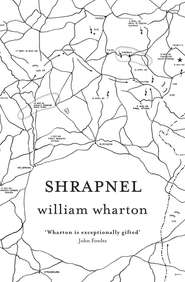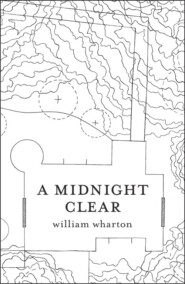По всем вопросам обращайтесь на: info@litportal.ru
(©) 2003-2024.
✖
Pride
Настройки чтения
Размер шрифта
Высота строк
Поля
Where I live, in Stonehurst Hills, there are rows of houses with alleys between them. These aren’t the same kind of alleys they have down in Philadelphia at my grandfather’s house. Those rows down there are older, were built before so many people had automobiles.
The rows we live in here, in Stonehurst, were built after the world war, when people started needing garages because they had cars.
At my grandfather’s, the alleys are only narrow walkways, wide as an ordinary sidewalk, with metal fences along the edges. There are gardens outside the back of each house, little tiny lawns, with flowers in the summer, lots of sunflowers and hollyhocks.
Also, at my grandfather’s house, you open two slanted cellar doors in the back garden and go down steps into the cellar, because those houses are built on flat streets, not hills.
Our alleys here were mostly built so cars could get into the garages. These garages are built under each of the houses. The alleys are wider, but, even so, it’s hard for two cars to pass in our alley, especially where there are still old-style porches with steps sticking out.
In our alley, the pavement’s cracked up so there’s nothing but pebbles and broken chunks of pavement. Also, everybody puts trashcans, ashcans or garbage cans back there and the street cleaner never comes down the alley so it’s all dirty and smelly.
The kitchens in our rows open onto the back porches. These porches are at least ten feet up in the air. If it weren’t for them, you could walk out the kitchen door, step off a brick cliff and kill yourself.
Whenever we’d knock down one of those old-style porches, my Dad’d always nail a few boards across the kitchen door, temporarily, so somebody wouldn’t forget and wind up smashed dead.
Our side of the alley is higher than the other because these rows are built along the side of a small hill. I guess that’s why they call this part where we live Stonehurst Hills. It’s a nice-sounding name for just rows of houses.
Our back porches are built out into the alleys and aren’t much. Each house in our row is sort of a reversed twin of the one next door. The old-style back porches were built so there was only one set of steps going up to each pair of houses. I don’t exactly know why they built those steps anyway; it’s easier, and makes more sense, to go through the kitchen, down the cellar stairs and out through the cellar door; that’s what everybody does.
The back porches are mostly used only to walk out on and hang clothes. Each house has a pulley clothesline going across the alley to the back of a house on the next street.
Our pulley has a line across to the McClosky place on Greenwood Avenue. They have one coming across to our place. All down the alley there are these pulleys with clotheslines.
The McCloskys are probably the only people we even know over on Greenwood Avenue. Nobody knows anybody on another row. In fact, I’m afraid to walk along Greenwood Avenue; there are some mean, tough kids living there, especially down near the end on the other side of the passageway. Practically none of them go to St Cyril’s where I go; mostly they go to Stonehurst, that’s the public school.
I don’t know when everybody agreed to put up those pulleys but it gives each house a chance to hang out clothes. In winter, or when it rains, we hang clothes in the cellar. On Mondays, in good weather, when most of the women in our neighborhood do the wash, you can hardly see down our alley for the wet clothes hanging out. Walking down that alley, coming home from school on Monday for lunch, there are so many clothes dripping it’s like walking through a rainstorm. And, on any day, there are almost enough clothes so you feel as if you’re walking under a tent.
There are fifty houses in our row, on our side of the street, the seventy hundred block of Clover Lane. There’s just that narrow passageway going through the alleys halfway down. The passageway is between 7048 and 7046. Our house is 7066.
The houses across the street, in front, uphill from us, have the odd numbers. There aren’t any numbers on houses in back alleys, the way there are on front. I know the McCloskys’ house must be 7067 Greenwood though I’ve never checked. It has to be.
As I said, we live on a hill. You wouldn’t know it, walking along any of the streets like Clover Lane or Radbourne Road or Greenwood Avenue because they’re all straight around the side of the hill. But going the other way, it is a hill. Radbourne Road is higher than Clover Lane and even the other side of Clover Lane is higher than our side. Our front lawn is flat but the lawns on the other side of the street are hills. It’s nicer having a flat front lawn for a garden but the hills are good for playing King of the Hill or digging tunnels.
One time I went into the front bedroom of Jimmy Malony’s house across the street on the hill side. I looked out his window there and could see all the way down the hill, all the way to Baltimore Pike almost. It was something I hadn’t expected. Jimmy’d taken me up to his parents’ room to show me some of his mother’s underwear but the view out that window interested me more.
We can’t see over top of the houses on Greenwood Avenue from our back bedrooms. Those houses are a little bit lower than our houses, so we drive up a small hill to get into our garage and they go down a little one to get into theirs. Still, we aren’t high enough so we can see over the houses on the other side of our alley. We just look smack into their windows surrounded by brick wall.
There are twelve steps up to the front porches of houses on the high side of Clover Lane. When you’re on the front porch of Jimmy Malony’s house you look right across into the bedroom windows of our side, but the street with the lawns and everything make it a long way across, so they probably can’t see anything, even with a spyglass.
It’s down in the alley where the iceman comes. He carries ice up the porch stairs if there are steps left: I mean if Dad and I haven’t built the new kind of porches without steps. If we have, the iceman comes through the cellar and up the cellar steps.
Most everybody has a yellow card in the kitchen window if they want ice; sometimes it’s in the cellar window. It has 25, 50, 75 and 100 printed in the corners. You turn it up to how many pounds of ice you want. If you don’t want any, you turn it backward. A few people are starting to have refrigerators now and don’t have cards in the windows.
If you’re in the alley when the ice truck comes, the iceman will always chip off a piece of ice for you, or sometimes there are pieces of ice splintered off from where he’s split a chunk of ice before. The floor part of the ice truck is wooden, soaked wet all the time and with shining silver metal tracks to make the ice slide easier. The iceman can cut off perfect cubes of ice or larger pieces just using his icepick. Sometimes it only takes one or two swings and he gets it cut through. He has a pair of big ice tongs and uses them to pick up the ice and throw it over his back onto a wet burlap sack. Our iceman is short, but he’s really strong. I don’t know where he lives and he doesn’t speak much American.
Also, the man who sells fruits and vegetables comes through our alley. His truck is old and painted dark green. He stops the truck and yells, ‘Fresh fruits, fresh vegetables’, but if you didn’t know, you wouldn’t know what he’s saying: he runs it all together and practically sings. He’s Italian and is hard to understand.
When Mom sends me down to buy something from him, she always tells me to watch the scale and check the change because he’ll cheat me. But, so far as I can see, he cheats himself more than anybody. He always throws one more of anything onto the scale after he weighs it and charges for only the two pounds or whatever it is you’ve bought. Also, he usually gives me some fruit to eat, for free. He does this for everybody, not just me.
Down our alley also comes the man who sharpens knives and scissors and the man who scrapes horseradish from big horseradish roots. He mixes it in jars while you stand there; you have to bring your own jar. My dad loves horseradish. It makes me cry. I think it’d even make a horse cry. The ashman, trashman and garbage man come down our alley, too.
The milkman with his horse comes down the front street. He has a white horse with pale gray circles all over. This horse knows the milk route so well he goes from house to house without the milkman telling him. Mostly the milkman comes early in the morning and I never see him, but sometimes the bottles rattling in the metal holder or the sound of the horse’s hoofs wake me up and I’ll sneak down to watch him from our front porch. This is only in the summer when it’s light early in the morning.
In winter he comes in the dark. When it’s really cold the cream freezes in the bottle so it pushes right up, lifting the cardboard lid with the little tab, like the lid on a Dixie cup. That frozen cream is almost ice cream, and it’s delicious on cornflakes, shining slivers of ice tasting like cream.
The coal comes into the coal bin through a tiny window in front. We buy five tons a year. The coal truck is the same truck as the ice truck but two men drive it and they’re not our iceman.
The coal comes in big burlap sacks and the truck has a long metal coal chute attached. They stick it through the window into our cellar. One man dumps sacks of coal onto the chute and the other keeps it sliding along with a big shovel. The coal is wet and makes a lot of noise; coal is cheaper if you buy it in the summer so that’s what we do, even though the coalmen always break our snapdragons and tromp the grass flat.
One of my jobs is picking up the pieces of coal that fall on the lawn. I usually get half a bucket that way, and it keeps coal from getting caught in the lawn mower. I mow the lawn and trim edges in the summer. Trimming’s the hard part, especially around the picket fence. Dad put up the picket fence to keep dogs out of our yard; kids too, I think.
The breadmen come by in front, but that’s usually in the afternoon. There are two breadmen, Freihofer’s and Bond. My mother buys Bond the same way we buy the Bulletin for a newspaper, not the Ledger or the Inquirer. I don’t know why. There are so many things young kids are not supposed to know. I know we buy Abbott’s milk, Bond bread and the Bulletin. I also know we’ve never bought anything from J.I., not even light bulbs for three years and I know why we didn’t.
Now Dad’s back working for them I don’t know if we’ll start buying J.I. things again or not. J.I. stands for Jersey Industries. Dad told me it’s not like a Jersey cow but Jersey like the state. We live in Philadelphia but Dad works for J.I. That’s where the main plant is, New Jersey. I still don’t understand why he went back working for them. Also coming down the front street summers selling things is the ice-cream truck, and the man with the tiny merry-go-round for little kids.
One thing we have a lot of in our neighborhood is kids. There are almost more kids than there are dogs and cats. Most of the dogs and cats don’t belong to anybody but usually the kids do.
I like the alley better than the front street. There’s something secret about it, everything’s so real back there. Nobody’s putting out bird baths without water or planting flowers. It’s just the way it is and I like it. The front porches are mostly all painted and some people even have enclosed front porches. We have one of the only trees on our street. It’s actually in the middle of the lawn we share with the Robins next door. The Reynolds on our other side have a tree, too, they share with the Fennimores next to them; it’s not quite as tall as our tree. These trees are the kind that grow up straight; they’re the tallest things around our neighborhood. Taller than the telly poles, even. Any other kind of tree, like the kind that sends out side branches, wouldn’t find any space. Everything’s jammed in awfully tight around us in Stonehurst.
The highest part of the hill we’re on, starts up at Clifton Road, which is on the high side of Radbourne Road. Then, after Radbourne, it’s Clover Lane, below us is Greenwood Avenue. The other side of Greenwood Avenue opens up on a big open lot where we look for snakes, break bottles, burn Christmas trees, those kinds of things.
The street that actually goes down the hill, just five houses toward Long Lane from our house, is Copely Road. It’s the best sledding hill close by. For real sledding, we go over to the golf course by Upper Darby Junior High School. There are some good hills there. But Copely Road’s fine for ordinary sledding. When the snow’s packed hard you can go all the way from Clifton Road alley way down past the end of the vacant lot, almost to where Copely Road turns up toward Guilford Road and out to Long Lane again. Long Lane is where most of the stores are; that is, except for the Little Store.
Not everybody in our neighborhood has cars, so a lot of the garages are empty. Some people use them to store extra stuff and some men have workshops in them. The Hershafts built the Little Store in their garage. It’s one of the only places you can buy food or milk with only a piece of paper you sign and no real money.
But you have to live in the neighborhood for Mrs Hershaft to let you do that. My mother says everything is always more expensive at the Little Store, but a lot of times we buy food there, especially things like milk or soap or cans of soup or sugar. It’s a place my mother can send Laurel or me to buy something and not worry.
My mom worries a lot; that’s the way she is.
We do the real shopping up on Long Lane in the A & P or the American Store. Saturdays we go to the Giant Tiger on Baltimore Pike, when Dad drives us over there.
My father has a car. It’s a car that was in a crash and wasn’t running. Mr Carlson sold it to him for five dollars. He worked on it in our garage and got it running again. He cut off the crushed back, made it into a kind of truck, and painted it gray with some of our porch paint. It’s a Ford Model A car but it doesn’t look like any ordinary car. We use it to haul the wood for building porches.
My father and I build porches on weekends to pay off our back rent. For a long time Dad didn’t have any job because of the Depression. When the Depression came, J.I. laid off everybody, with only two weeks’ notice, including my father. There was nothing he could do about it. Most of the people on our street didn’t have jobs either. Everybody was on relief or working for the WPA.
During that Depression time, we got three years behind in our rent. Mr Marsden, who collects the rents, let us stay on in the house because there was nobody with any money to move in if we left. If a house is left empty in our neighborhood, all the windows get broken and even the front-porch railings get stolen for firewood. Some people move out in the night without paying the back rent.
When somebody moves, everybody helps. They’ll have an old truck or a bunch of cars and they’ll move away all the furniture in the dark. A lot of people have their electricity and gas cut off because they can’t pay those either, so they can’t live in the house any more.
My dad helped people like the O’Haras across the street and the Sullivans move. Even if anybody knew where these people moved to, they wouldn’t say, so Mr Marsden wouldn’t find out. I don’t know what the police could do to those people if they did catch them. Nobody has much money except rich people, and you can’t throw everybody in jail.
It was a couple years ago when my dad got the idea of building a new porch on our place. Mom was scared to go out on our old little rotten wooden porch to hang our clothes. Dad got the Reynolds next door to pay for the wood, by promising he’d do the work himself. Mr Reynolds works in a drugstore. We call him a pharmacist because it’s a nice idea to think you live next door to a real pharmacist, but he only works in a store in Media selling things like lipstick and corn plasters. But he has a job.
Dad built one straight porch across our two places, without any steps. It was a regular deck like the deck of a ship. He put down new posts to hold it up further out than the old posts but it still didn’t go as far out into the alley as the old steps did. This new porch is ten times bigger than the old one. It’s almost’s big as the front porch and has sun on it in the morning. On our side of the street there’s never any sun on our front porch, even in summer.
Now, with our big porch, Mom isn’t afraid when she hangs out clothes; and we go downstairs through the cellar.
She and Mrs Reynolds made Dad put wire on the railing so nobody could fall off. Little Jimmy Reynolds is only three and Mrs Reynolds can have him out there in the sun and watch him from the kitchen while she’s cooking and washing dishes.











